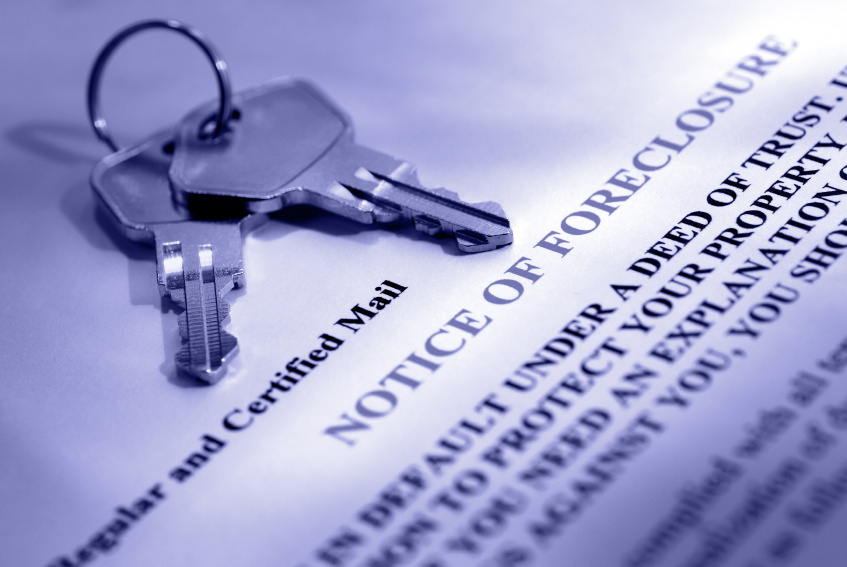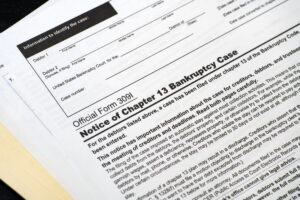Avoid Foreclosure And Keep Your Home In Colorado
Want to know how to avoid foreclosure in Colorado? We can help. Read on to learn about the Colorado foreclosure process, how to avoid foreclosure in Colorado, and how to stop a foreclosure in Colorado.
What Is Foreclosure?
A foreclosure takes place when a homeowner stops making payments or misses required payments under the mortgage contract. A foreclosure can also happen if a creditor with a lien wants to sell the home to satisfy its lien. Home owners associations (HOAs) can foreclose on a home, for example, for violating the HOA’s rules.
A foreclosure forces the homeowner to surrender ownership of her home to satisfy the mortgage or other debts.
What Is The Foreclosure Process In Colorado?
There are two kinds of foreclosure sales in Colorado: public trustee foreclosures and judicial foreclosures. The most common type in Colorado are public trustee foreclosures, and will be the one we focus on in this article.
Judicial foreclosures typically happen when a creditor has gotten a judgment against a homeowner. The judgment allows the creditor to put a lien against the homeowner’s home. A judicial foreclosure allows the creditor to sell the house and have its debt paid out of the proceeds from the sale of the home.
Public trustee foreclosures happen after the homeowner has defaulted on the mortgage. The process starts by the public trustee notifying you of the foreclosure process. A foreclosure sale will usually not happen any sooner than 120 days after the lender has started legal foreclosure proceedings. That gives you 120 days to: bring your mortgage current, apply for a modification, or file bankruptcy.
Bankruptcy can stop both a public trustee and judicial foreclosures.
Will Bankruptcy Stop Foreclosure In Colorado
Bankruptcy will immediately stop any foreclosure action as soon as the homeowner’s petition is filed with the bankruptcy court. The petition has to be filed before the foreclosure sale date. One minute after the foreclosure sale, and you’re out of luck.
How Chapter 7 Bankruptcy Can Help You Avoid Foreclosure
Typically, homeowners have two options for stopping a foreclosure with bankruptcy. The first is Chapter 7 bankruptcy. The second is Chapter 13 bankruptcy. Whichever you choose, it’s crucial to remember that the bankruptcy petition must be filed before the foreclosure sale happens.
Chapter 7 bankruptcy will stop the foreclosure, but it won’t allow you to get caught up on any missed mortgage payments. A Chapter 7 bankruptcy might be a good option if you have the ability to bring the mortgage current shortly after filing filing bankruptcy. Chapter 7 might also be a good option if you plan on surrendering the home but need some additional time to settle into a new living arrangement. A Chapter 7 will also eliminate any liability if the mortgage lender sells the home for less than you owe on the mortgage.
A lender can start (or restart) or foreclosure in the middle of a Chapter 7 bankruptcy by asking the court’s permission. The court will usually allow the sale to move forward unless the homeowner can show that she has made all mortgage payments. So, a Chapter 7 may only be a “speed bump” for the lender on the road to foreclosure.
How Chapter 13 Bankruptcy Can Help You Avoid Foreclosure
Chapter 13 bankruptcy is the better option if you need help catching up on mortgage or HOA payments. A Chapter 13 bankruptcy reorganization plan will allow you to pay any mortgage arrears (or HOA penalties) over the course of a three to five year repayment period. For example, if you’re behind on your mortgage by $10,000, you can spread the $10,000 over three to five years.
Of course, you’ll also have to be able to make your regular house payment (and other living expenses) in addition to your reorganization plan payment.
Chapter 13 is a great option for someone who suffered a temporary reduction in income and just needs some breathing room to get caught up on everything.
Chapter 13 also offers other benefits, such as the power to “strip” judgment liens, which are liens that arise from a lawsuit for a debt. The math has to be right, though. If the home has more equity than can be protected in a Chapter 7 (currently $250,000), you may not be able to strip a judgment lien or may only be able to partially strip it.
Chapter 13 can also “cram down” any second mortgages or home equity lines of credit as long as the home is not worth more than the primary (or first) mortgage. We’ll have to look at your home’s market value to see if that is an option.
Using A Deed In Lieu Of Foreclosure
If you want to surrender the home but don’t want to file bankruptcy, you could also consider a deed in lieu of foreclosure. A deed in lieu of foreclosure may allow you to walk away from the house without the lender coming after you for the mortgage. Keep in mind, though, that the lender has to agree to a deed in lieu of foreclosure and has to agree not to pursue you for any deficiency for the mortgage. Deeds in lieu of foreclosure can be challenging to negotiate, and lenders are not inclined to agree to them.
Which option you should choose depends entirely on your specific situation. An experienced bankruptcy attorney can talk you through your option
Talk To An Experienced Bankruptcy Attorney About How To Avoid Or Stop Foreclosure In Colorado
We have guided more than a thousand Colorado residents through the Chapter 7 and Chapter 13 bankruptcy to help them stop foreclosure and garnishment. We’ll be happy to sit down with you to discuss all of your options, bankruptcy or not, for keeping your home. We offer free consultations to people who are considering bankruptcy. The easiest way to schedule an appointment is by clicking here.
Check out our client reviews on Google, Facebook, and Avvo!



